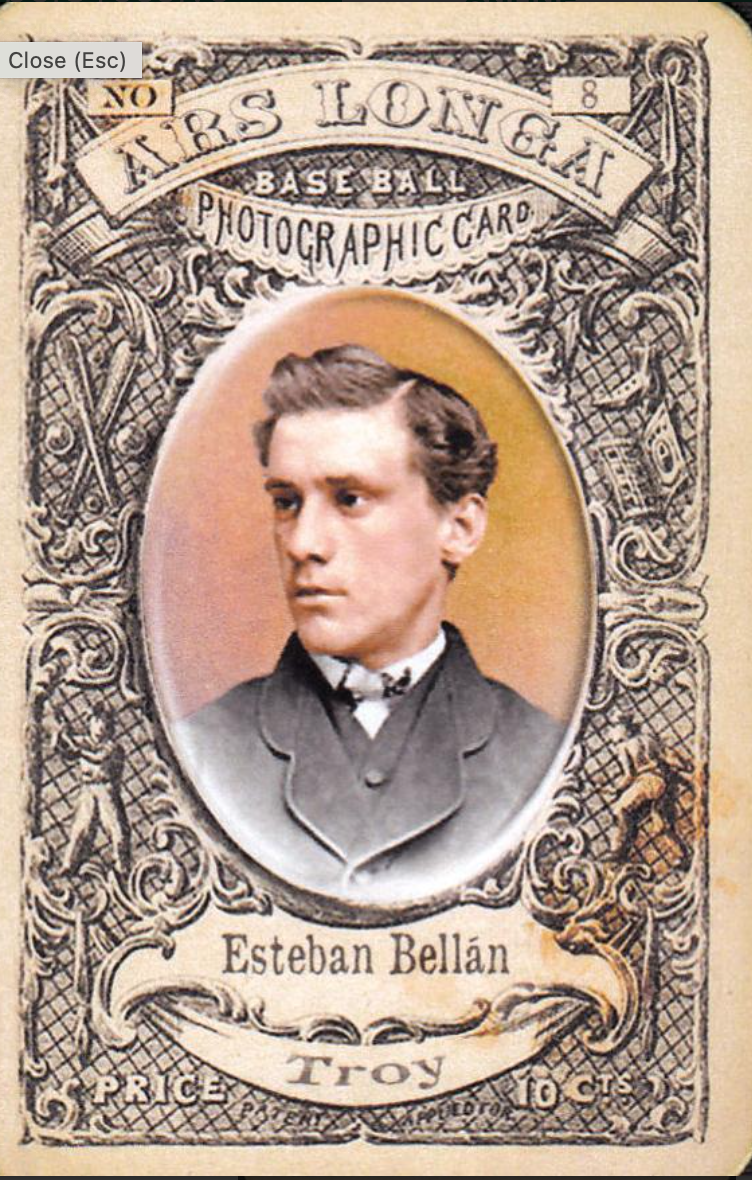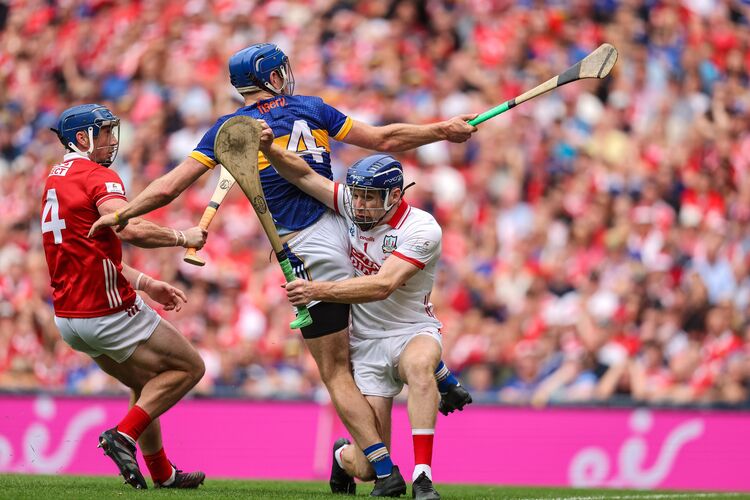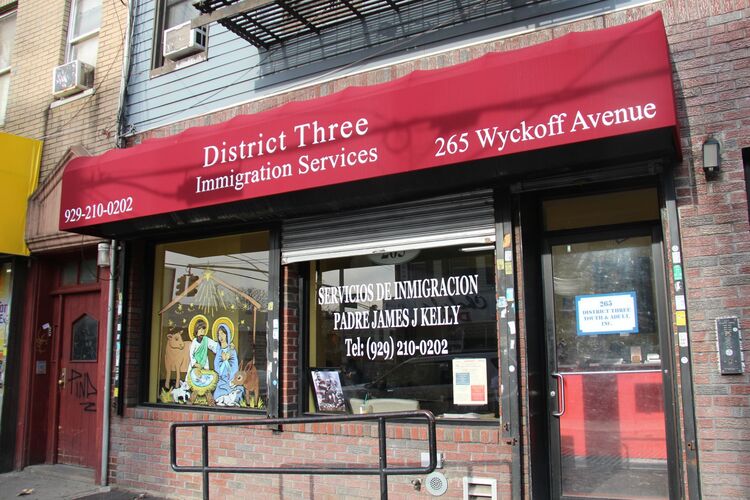Though separated by only 90 or so miles, Cuba and the United States are two vastly different countries. Cuba is still a socialist state, in which the role of the Communist Party is enshrined in the Constitution. Cuba is a country whose existence seems so threatening to the American government that its citizens are not even allowed to visit it. The love of one sport, baseball, however, transcends these huge differences and unites these two very different lands. An Irish Cubano played a huge role in helping introduce baseball into Cuba and today that Irish Cubano, Esteban Bellán, is honored as the father of Cuban baseball.
Bellán was born in Havana on Oct. 1, 1849, to a wealthy Cuban father whose name has been lost to history, and Hart Bellán, his Irish-born mother. We know little about Bellán’s family, but they must have been rich enough to send Esteban to New York for schooling. Bellán arrived with his mother in the Bronx at age 13 in 1863 and she enrolled her son in the preparatory department at St. John’s College. A small Catholic school at Rose Hill in the Fordham section of the Bronx, the college would later become Fordham University. In the 1860s, it was home to at least 10 Latin American students, one of whom was Esteban’s older brother Domingo. Esteban learned English from the Jesuit fathers at Rose Hill. Bellán, however, is not remembered for his academic achievements, but for the sport he first played at Fordham.
In 1859, four years before Bellán arrived in the Bronx, Fordham started a baseball team. Estevan, who stood 5-feet-6 inches and weighed 154 pounds, joined the Second Division baseball team, the Live Oaks, possibly having seen the game being played back home in Cuba by American sailors. A year before his arrival, Fordham University’s first division team, the Rose Hills, made collegiate sports history when they played the first-ever intercollegiate baseball game with nine men on a team.
The American players called Bellán “Steve,” a name he would have throughout his American career. Three years later, Bellán, a skilled catcher and hard-hitting lead-off batter made the Rose Hills. Two years after that, in June of 1868, Esteban smacked four hits in a game against a team that was part of the forerunner of Major League Baseball, the National Association of Base Ball Players. NABBP (baseball was written as two words in the 1860s) One of the umpires in the game was a member of the Association’s Bronx team, the Unions of Morrisania and he recruited Bellan to leave Fordham and join the Unions. Though baseball was still amateur then, more and more players were getting paid to play and Bellán must have seen an opportunity to start a career as a professional baseball player. He left Fordham and joined the Unions and helped his new club win the NAABP championship that season. Sadly, the NABBP discriminated against “colored” players, Esteban, however, who must have inherited his Irish mother’s fair skin, was allowed to play, though other Cubans were not.
The following year, Esteban joined an upstate team, the Troy Haymakers, and his mother and sister, Rosa, came to live with him. In 1871, when the Haymaker organization declared itself a professional club, Esteban became the first Cuban and Latin American to play professional American baseball. He moved to third base and proved to be fast on the bases and a player who could hit for average. He acquired the nickname the Cuban Sylph and by 1871 Bellán had become an everyday player for the Haymakers. Bellan played with Troy until 1872 and then joined the New York Mutuals. In 1874, he became a naturalized American citizen and immediately obtained a passport, intending to visit his native land, but hoping to return to New York and resume his career.
Something happened to disrupt his planned return. Cuba was still a Spanish colony, but it was chaffing under Spanish rule. The rulers of Cuba, favoring their national sport bullfighting, outlawed baseball, so for Cubans, playing the American game became an act of defiance against colonialism, and Cubans quickly latched onto the new game with gusto.
Bellán would play a crucial role in Cuba’s adoption of baseball. While it is widely accepted that the Guilló brothers brought baseball to the island, Bellán played an integral part in the further development of the game. Many Cubans consider Bellán the father of Cuban baseball because he helped organize the first game played on the island in 1874. On Dec. 27, the famous game was played in Palmar de Junco field between Bellán’s team from Havana and the home club from Matanzas. Acting as a player-manager in this game, he hit three home runs and scored seven runs, helping his Havana team defeat Club Matanzas 51-9. He would later serve as a player-manager for his Havana club from 1878 to 1886 and led his club to three Cuban league championships.
He later left the game and faded into obscurity before dying in 1932 at age 82. The league he helped found continued to operate until after the 1960/61 season when the Cuban government abolished all professional sports and replaced them with state-run amateur leagues.
Today Bellán is honored throughout Cuba as one of the country’s first great players and managers, while Fordham honors and remembers him as its first professional baseball player and as an enduring symbol of the University’s historic connections to Latin America and the Caribbean. He was inducted into the Fordham University Hall of Fame, and a statue was erected in Havana in his honor. Thanks in part to Bellán, other Latin American countries adopted baseball, and today hundreds of Major League players hail from those lands.







